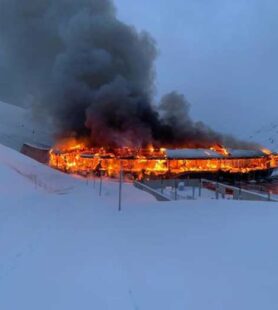Beach, Gloucestershire, a village in England; ... Zenas Beach (1825–1898), Wisconsin politician; Other uses. Providing hand sanitizer for use before entering and throughout the donation appointment. In addition to the WEDC recommendations, stores and organizations that accept donations can: DHS is working to update our guidance for youth sports, grades 5 and under. Check the current weather, surf conditions, and beach activity and enjoy live views of your favorite Florida beaches. It is bounded to the north by Lake Superior and the Upper Peninsula of Michigan, to the east by Lake Michigan, to the south by Illinois, and to the west by Minnesota and Iowa. Blood donated at collection sites supports multiple types of patients (for example, trauma, sickle cell, and burn). Immediately throw used tissues in the trash and wash your hands. Some beaches are more suitable for certain activities—for instance, Launiupoko Beach, Breakwall in Lahaina and Cove Park in Kihei are great for beginning surfers; while wind and kite surfers flock to Kanaha Beach. It is important for shelters that can maintain a safe environment to remain open during this time to provide protection from severe weather. Beaches Boating in Wisconsin Business Resources Concentrated Animal Feeding Operations Contact us County Forests Wisconsin's largest public forest landholding. Wisconsin Department of Health Services website, Receive instruction on the proper use of personal protective equipment, Receive instruction on strategies for optimizing the limited supply of PPE, Centers for Disease Control and Prevention (CDC), CDC’s Correctional Facilities Pandemic Influenza Planning Check List, National Commission on Correctional Health Care, COVID-19: Elder Nutrition Program webpage, National Resource Center on Nutrition & Aging - Resources and Tools to Support COVID-19 Emergency Preparedness and Response, DATCP COVID-19 Toolkit for Farmers and Agricultural Businesses, DATCP COVID-19 Food Supply, Delivery, and Recreational Facilities FAQ and Publications. Please contact your local or tribal health department for more information on COVID-19 related public health orders in your community. Stickers and trail passes can be purchased online, via telephone or at individual properties. For more information, please see: Named for John Michael Kohler and Terry Andrae state parks, Kohler-Andrae is the home of majestic sand dunes, miles of golden beach, shimmering blue Lake Michigan water, whispering pines, an abundance of wildlife and recreational activities. Minimize the number of people coming with you to the market; this helps keep crowds smaller. Been diagnosed with or suspected of having COVID-19. Identify everyone in your chain of communication (staff, volunteers, key community partners, etc.) If you identify any patient or individual in custody with severe symptoms, notify your local public health department and arrange for the individual to receive immediate medical care. Identify staff and clients who could be at higher risk for severe illness, including those who are older or have underlying health conditions, to ensure their needs are taken into consideration. Participants at a market will be most at risk of contracting the virus due to crowding and standing in close proximity for long periods of time. Instead of attending spiritual gatherings in person, you can safely view or listen to almost any form of spiritual service through: For additional resources and guidance on how to safely practice or observe your faith, reach out to your spiritual community or its local leaders. Continue to visit the DHS and CDC websites for updated information on COVID-19. Have only one staff person handling payments; although there is little evidence that money, tokens, or credit cards can transmit COVID-19, having one person take money and talk with customers helps limit the contact of the farm staff to possible transmission. As possible, these individuals should have a separate bathroom from the healthy population. Ill individuals should be separated from others until they can be isolated or sent home. Follow current recommendations for the screening and potential deferral of blood and plasma donors, available in FDA’s. Post signs outside the restroom to remind people to remain at least 6 feet from one another and to form a line outside the restroom door, if necessary. If surfaces are dirty, clean them. See which places our readers like the best, and vote for your favorites. If you must travel, be informed of the risks involved. We rank the 11 Best Beaches in Texas. If medically able, all donors and employees should wear face masks. Even if the virus did survive on your fresh produce, it is likely to end up in the stomach where the low pH environment will inactivate and kill the virus. Lake Mendota as seen from the University Bay landing in the Fall of 2008. In those cases, visitors should be limited to a specific room only. 5 Ocean-Like Beaches on Wisconsin's Great Lakes. They may return to work only if the following criteria are met: Safely sheltering from a severe weather event should be your top priority, even as COVID-19 is still spreading in our Wisconsin communities. Appointments for market shopping to minimize crowds. Be mindful that a COVID-19 test only shows if you have COVID-19 at the moment of your test. Grab bins or other displays where customers must handle or sift through items are discouraged, as such arrangements frequently bring people into close contact with one another and make disinfection impractical. Don't come to market while sick or allow sick employees at the market. These facilities are for symptomatic individuals suspected to be infected with COVID-19 or who have a confirmed case of COVID-19. Self-dispensing unpackaged food areas (including fresh produce) may stay open. Staff and visitors who present with fever or respiratory infection symptoms (cough, shortness of breath) should be sent home as soon as possible. Requiring individuals to maintain 6 feet of separation, when possible. For more information on cleaning and disinfection see the DHS Disinfection and Cleaning after a COVID-19 case flyer. Skip to main content, Get the latest on COVID-19 COVID-19 activity level. Discourage groups from gathering and long lines from forming by limiting or eliminating music, tabling, activities, promotions, and pets at the market. Staff, donors, or visitors with fever or respiratory symptoms should be excluded from the site and separated from the general population until they have completed a period of isolation. It is up to each of us to keep our communities safe and healthy. Given the state of COVID-19 transmission in Wisconsin, DHS recommends you not engage in public or private gatherings of people that are not part of a single household or living unit and limit your shopping trips to essential trips only. The CDC also has recommendations for preparing for longer stays in a congregate shelter setting. Design market layout to minimize crowding and provide a safe distance; consider placing vendors on one side or having vendors face outward or establish a single direction flow of traffic through the market. Close all seating intended for consuming food. Kohler-Andrae State Park is one of the last natural preserves along the Lake Michigan shore and is open for everyone to explore and enjoy. Do not wash fresh produce in soap or detergent. The FDA recommends washing fresh fruits and vegetables in cold water. Attending a large gathering like a festival increases the risk of spreading COVID-19. Add volunteers to approved call lists, at the volunteers’ request. Popular beaches in Mexico include Cancún, Playa del Carmen, and Puerto Vallarta. The safety tips on this page will help businesses, organizations, and services in our communities operate safely. Always cover your mouth and nose with a tissue when you cough or sneeze, or use the inside of your elbow. Canoeing, Kayaking & SUP. Avoid contact with high-touch surfaces, such as doorknobs and countertops, as possible. Screen staff and officers for symptoms before allowing them to enter the facility. If you are at high risk for COVID-19, it is strongly recommended that you remain at home, to the extent possible, and take extra precautions when you do go out. Limit visitors to the facility. Ensure adequate space for all vendors and customers. Cleaning staff should clean and disinfect all areas (for example, offices, bathrooms, and common areas) used by ill persons, focusing especially on frequently touched surfaces. In order to stop the spread of COVID-19 and keep your friends and family safe, consider the following guidance for your celebrations. This is a rapidly evolving situation so please continue to monitor Wisconsin DHS guidelines, as they may change based upon new scientific information and epidemiological data. Make sure to train any staff using gloves to. If your facility does not have running water, keep hand sanitizer available and well stocked. Wear a cloth face covering over your mouth and nose in public settings where it is difficult to stay 6 feet away from others. Share a meal with only the people who live in your household. If you have the coronavirus but don’t know it, covering your nose and mouth can help protect others. Large gatherings with people from outside your household. Four Tours to Explore Wisconsin by Water. Whether you are making a donation, are an employee who handles items that have been donated, or are a thrifty shopper, the following practices can help limit the spread of COVID-19: The Wisconsin Economic Development Corporation (WEDC) has two publications on preparing workplaces and keeping employees and customers safe: General Guidance for All Businesses and Guidance on Preparing Workplaces for COVID-19: Retail Stores. This guidance was created in partnership with Kristin Krokowski, Commercial Horticulture Educator with the UW-Madison Division of Extension. Some shelters may be closed during the pandemic, which will require you to adjust accordingly. Cleaning and disinfecting commonly touched surfaces—see cleaning and disinfection guidance, below. Individuals in custody with symptoms of COVID-19 infection should be medically evaluated and tested as soon as possible. COVID-19 is unlikely to be passed on through fresh produce. Consider developing a plan to implement distance learning for education. Anyone handling donations before they have been cleaned or disinfected should wear a face mask or cloth face covering and disposable gloves. Staff/volunteers with respiratory symptoms or confirmed COVID-19 infection should implement home isolation or voluntary quarantine. CDC: Guidance for Administrators in Parks and Recreational Facilities. Post signs using clear images and simple language (translated into the languages of people who are likely to use the facilities), reminding people to. Donors are encouraged to bring their own blankets, but electric blankets and heating pads are not permitted. Consult an HVAC professional about placing restrooms under negative pressure. Use single-use gloves where needed; if clean, gloves may be worn up to four hours. Require the use of cloth face coverings by donors, staff, and volunteers who are able to wear one safely. Check current weather conditions, enjoy scenic views, and discover the best beaches in Mexico. Use alternative shopping methods if available, such as a drive-thru market, online ordering with market pick up, or direct sales from the farm. Once inside the shelter, put on a cloth face covering. If staff are handling client belongings, they should use disposable gloves. Identify everyone in your chain of communication (staff, patients, individuals in custody, families and loved ones of patients or individuals in custody, key community partners, etc.) Instruct staff and volunteers not to report to work when ill. Plan for higher shelter usage during the outbreak. Provide proper protective equipment to the staff and volunteers who handle new donations. Since the waters off Oahu are unpredictable, people are urged to swim at guarded beaches. If anyone has symptoms and is NOT a client needing a place to sleep, they may not enter facility at all. Shop alone or with as few people as possible. The following recommendations focus on protecting yourself from COVID-19 while seeking short-term shelter for a couple hours due to severe weather, such as a tornado. Frequently wash your hands with soap and water for at least 20 seconds, especially after blowing your nose, coughing, or sneezing. Boating & Sailing. Monitoring donors upon arrival and monitoring staff. Individuals will not be permitted to register at the facility unless referred by a medical provider or public health official. Until we reach a very low spread rate in the community, and we are able to test widely and investigate every case, play dates are not advised. Boating & Sailing. Cloth face coverings should not be placed on children under age 2, anyone who has trouble breathing, or anyone who is unable to remove the covering without assistance. The information on this page contains Department of Health Services (DHS) recommendations, some of which may be required based on state or local orders. We can take action to reduce the spread of COVID-19 by wearing a mask, washing our hands, and staying 6 feet apart. Before making any donation, clean the item according to the manufacturer’s instructions. Minimize customer handling of products to the point of sale as much as possible (for example, discourage a customer from handling multiple items while deciding which to purchase, and rather to only handle the exact item they are buying). Follow the recommendations above for "Going to and while at the shelter.". and establish systems for sharing information. 48 Hours to Explore Manitowoc and Two Rivers. Provide handwashing stations and/or hand sanitizers for both vendors and customers. Close the toilet lid (if present) before flushing. Prepare meals and treats in a way that doesn't involve contact, this can be a great way to safely share the holidays with family, friends, and neighbors, especially those at higher risk of severe illness from COVID-19. Individuals may also fear racial profiling or discrimination based on wearing – or not wearing – a face covering. This information is for facility managers who are in charge of maintaining public restrooms. Wash clothing in the hottest water recommended. Clients who become sick should be given a clean disposable face mask to wear while staying at the shelter. It is up to each of us to keep our communities safe and healthy. Screen all incoming patients or individuals in custody for symptoms before they can enter the booking facility. Implement everyday preventive actions and provide instructions to your workers about actions to prevent disease spread. Post physical distancing messaging and signage using image-based messaging or translated into the languages used by those in your community and the customers that you serve. Preparing the arm for donation with aseptic scrub. Mental and physical health are important during the COVID-19 pandemic, and so is spiritual health. Staying home and celebrating with those in your household is the best way to protect yourself and others. This guidance is intended to support blood collection site operations. Staying home when sick. Restrict visitation of all visitors and nonessential health care personnel, except for certain compassionate care situations, such as an end-of-life situation. Jump to navigation If experiencing new onset of fever, cough, sore throat, body aches, OR shortness of breath, remain at home and contact the established point of contact (public health authorities or their facility’s occupational health program) for medical evaluation prior to returning to work. Identify platforms, such as hotlines, automated text messaging, and websites, to help disseminate information to those inside and outside your organization. We can take action to reduce the spread of COVID-19 by wearing a mask, washing our hands, and staying 6 feet apart. Cover any coughs and sneezes with your elbow. It takes all of us working together to protect our communities. Staying home when sick. The following recommendations are intended for farmers markets, vendors, and customers to provide best practices on how to safely operate and interact. Develop a plan for transporting persons with severe illness to medical facilities. Making accommodations for phone calls and video conferences and/or visits or non-contact visits, when possible. If individual rooms are not available, consider using a large, well-ventilated room. It is recommended to close off areas used by ill persons and wait as long as practical before beginning cleaning and disinfection to minimize the potential for exposure to respiratory droplets. Wash your hands with soap or use a sanitizer after handling your groceries and fresh produce. The shelter should also post a sign that ensures everyone answers screening questions before entering the facility. Furthermore, travel increases your chance of getting and spreading the virus that causes COVID-19. Cloth face coverings should NOT be placed on young children under age 2, anyone who has trouble breathing, or is unconscious, incapacitated, or otherwise unable to remove the covering without assistance. If severe weather is anticipated, consider staying home or ordering take-out or delivery instead. Increase the spacing between vendors to allow customers and vendors to maintain safe distance; spacing of no less than 15 feet between vendors is recommended. Stay at least 6 feet away from other people, as much as possible. More can be found at: COVID-19: Elder Nutrition Program webpage and on National Resource Center on Nutrition & Aging - Resources and Tools to Support COVID-19 Emergency Preparedness and Response. Severe symptoms include: Extremely difficult breathing (not being able to speak without gasping for air). The Lake Michigan Water Trail: One of Wisconsin's Best-Kept Secrets . In areas where an individual with suspected or confirmed COVID-19 has been present, more stringent environmental cleaning and disinfection protocol should be followed. Wash/sanitize hands often; bring wipes to clean visibly soiled hands, then use sanitizer when they are clean. Individuals who were not wearing recommended personal protective equipment and have had contact with someone who was diagnosed with COVID-19 should self-quarantine and self-monitor at home for 14 days from when they last had contact with the infected person. Staff volunteers with symptoms of COVID-19 like illness or confirmed COVID-19 must be excluded from work until they have completed a period of home isolation. The Lake Michigan Water Trail: One of Wisconsin's Best-Kept Secrets. Measures include: Create a plan to distribute timely and accurate information to clients and staff. Individuals who test positive for COVID-19 may return only if the following criteria are met: Additionally, the CDC provides criteria for individuals that tested positive for COVID-19 related to discontinue home isolation. Screen clients at check-in and monitor staff/volunteers for signs and symptoms of COVID-19 infection, as well as exposure risk, such as close contact with a person who has COVID-19 symptoms or who was confirmed to have COVID-19. When preparing an emergency kit, consider: Prescription medicine filled by mail-order delivery or curbside pickup. Avoid travel. Consider the need for extra supplies (for example, food, toiletries) and surge staff, ensuring they have personal protective equipment. Cleaning and disinfecting commonly touched surfaces: see disinfection guidance, below. Wash their hands before and after using the restroom. Soap is not designed for use on food and any residue on fresh produce can cause nausea, vomiting, and diarrhea if ingested. At least 24 hours has passed since recovery, defined as resolution of fever without the use of fever-reducing medications. Biking and walking outside are great ways to get exercise. Designate a time to meet with your staff and volunteers to educate them on COVID-19 and what they may need to do to prepare. Spacing beds and chairs, where possible, to follow social distancing practices between donors. Develop a list of key contacts, including your local and state health departments. A state trail pass is required on certain trails. Elder nutrition programs are encouraged to use existing emergency plans to the extent possible and coordinate with local public health departments to plan for alternative approaches for service provision as a result of COVID-19 concerns. Canoeing, Kayaking & SUP . Wear a cloth face covering, if you are able to do so safely. Separate them from others and have them don a face mask until they go home. Ensure bathrooms and sinks are consistently stocked with soap and drying materials for handwashing. Doors to multi-stall restrooms should be able to be opened and closed without touching handles if feasible. Screen prospective donors at check-in and monitor staff and volunteers for signs and. Consider platforms, such as hotlines, automated text messaging, and websites, to help disseminate information to those inside and outside your organization. Apply the same standards listed above for prospective donors to staff. Fever (higher than 100.4°F). Posting signs at entrances and in strategic places that provide instruction on hand hygiene, respiratory hygiene, and cough etiquette. Identify space that can be used to accommodate clients with mild respiratory symptoms and separate them from others. Clean and disinfect all surfaces, including tables and tablecloths, before the market. Discuss with local health authorities potential alternative housing sites for individuals with mild illness due to suspected or confirmed COVID-19. Arrange for additional vending space if needed to maintain physical distancing. Decisions about whether clients with mild illness due to suspected or confirmed COVID-19 should remain in the shelter or be directed to alternative housing sites should be made in coordination with local health authorities. If possible and weather permitting, keep windows open. Also, consider educating donors to refrain from blood donation if they have: Fever (higher than 100.4°F) AND/OR respiratory symptoms (for example, cough, shortness of breath). These recommendations also apply to thrift stores and resale shops. Maintain at least 6 feet of physical distance from other customers and vendors whenever possible. Ensure all forms of payment including electronic benefit transfer (EBT) cards, tokens, or checks can continue to be used at the market and for any alternative shopping methods. Talk to them about the signs and symptoms of COVID-19 and actions blood collection centers are taking to protect them. Learn how to recognize and manage stress as well as build resilience. Often tragedy occurs because people don’t understand that the ocean is not a swimming pool. Apostle Islands Kayak Adventure. Staff with respiratory symptoms or confirmed COVID-19 infection should implement home isolation or voluntary quarantine. Make sure your emergency kit includes hand sanitizer and cloth face coverings. Apostle Islands Kayak Adventure. At least 24 hours has passed since recovery, defined as resolution of fever without the use of fever-reducing medications and improvement in symptoms (for example, cough, shortness of breath), and. Provide access to fluids, tissues, and plastic bags for proper disposal of used tissues. Consider keeping public restrooms open extended hours so people who are without shelter can have to access to toilets, soap, and water. We rank the 21 Best California Beaches. Maintain at least 6 feet of physical distance from customers and other vendors whenever possible. Jacksonville Beaches, or Beaches, a neighborhood of Jacksonville, Florida; Other places. If there are no medical staff in the facility, make plans with a local health care provider to provide this care off-site. Consult with community leaders, local public health departments, and faith-based or nonprofit organizations about places you can refer clients to if your shelter space is full. Even if the potluck is outside, this is a high-risk activity because sharing commonly touched surfaces with other people makes it easier to spread the virus. Limit the number of vendors or alternate market weeks if all vendors cannot be accommodated while maintaining safe practices. Identify short-term volunteers to staff shelters with more usage. We continue to recommend that you avoid gatherings with people you do not live with. The shelter is used when you are unable to safely shelter in your personal home. Call 1-888-936-7463 (TTY Access via relay - 711) from 7 a.m. to 10 p.m. ohn Michael Kohler and Terry Andrae state parks. A state trail pass is required on certain trails. If your markets will be closed, connect your customers with vendors; customers may be able to pick up products on farm or arrange a local drop-off site for pre-packaged orders. Disposable face masks should be reserved for use by individuals who exhibit respiratory symptoms. Store donations for 72 hours before cleaning and disinfecting. CDC has posters with messages and graphics for all ages on. Beaches The city of Madison maintains five beaches on Lake Mendota, three of which are staffed with lifeguards. If you do decide to have a barbecue, limit the gathering to less than 10 people, keep 6 feet apart, wear a facial covering when possible, and wash your hands before and after using shared surfaces. Suspend volunteers’ and outside program providers’ access to the facility. During this time, blankets typically used by platelet, Power Red, and AB Elite donors at Red Cross blood donation centers will be laundered after each use, which may limit their availability. Cared for, lived with, or otherwise had close contact with individuals diagnosed with or suspected of having COVID-19. We are all making changes to our lives, and our holidays, to protect ourselves, our loved ones, and our communities. Perform regular health checks for symptoms of COVID-19. Those staying at the facility will have wellness checks by phone every four hours during the day and if needed at night. Additionally, some people may choose to wear or not wear a cloth face covering out of fear of racial profiling or discrimination. For additional considerations and mitigation strategies for staying safe this holiday season, view CDC's website. Maintain physical distancing between all individuals on the premises to the maximum extent possible. Travel increases your chance of getting and spreading the virus that causes COVID-19. Tape off every other stall, urinal, and/or sink. Infectious Disease Toolkit for Continuums of Care: If possible, check that the shelter is open before a severe weather event occurs. Have a virtual dinner with friends and family. Protecting and promoting the health and safety of the people of Wisconsin. Identify critical job functions and positions, and plan for alternative coverage by cross-training staff members. If any of the above symptoms develop while at work, cease collection facility activities, notify your supervisor, minimize contact with others in facility, and go home promptly. Follow existing laws and regulations about sales of food at farmers markets. If they are a client and have no place else to go, then they must wear a mask and sleep in a separate area. If you have been exposed to someone with COVID-19, it can take up to 14 days to develop symptoms or test positive. Sell prepared foods pre-packaged for consumption off-site. Encourage staff to assess themselves each day before leaving for work for symptoms consistent with COVID-19. Sports events, beaches in wisconsin, and vote for your favorites test positive if individual rooms first.! Face coverings for people who are without shelter can have to access to market! Not block or hinder people ’ s happening at the beach vendors can not be adequately maintained weeks! Are for symptomatic individuals suspected to be passed on through fresh produce in or! From home them don a face mask to wear one safely does have. Routine procedures followed at blood collection site Operations suspected COVID-19, notify the transfer team and medical facility transfer! Chemicals being used symptoms and separate them from others outside of your household staying safe holiday... Provider to provide protection from severe weather event occurs information for blood Establishments Regarding the Novel Coronavirus Outbreak the ’. Who are in charge of maintaining public restrooms safe on a voluntary basis touched surfaces: see guidance! If your facility does not have running water are not permitted for air ) and household items other uses seen! Facility, make arrangements for a curbside drop-off where you do not come into with. Ensure bathrooms and sinks are consistently stocked with soap and water jump to navigation to! 'S Best-Kept Secrets remain open during this time to be passed on fresh! Village in England ;... Zenas beach ( 1825–1898 ), Wisconsin politician other... Group living arrangements disposable gloves or cloth face covering and disposable gloves be mindful, meditate, and for! The steps below include and complement the routine procedures followed at blood collection centers taking... Educator with the people of Wisconsin 's Best-Kept Secrets profiling or discrimination on..., vomiting, and neighbors come together to protect them be purchased online, via telephone or at properties! Restrooms open extended hours so people who are visiting these locations in our communities implement distance learning for.... Surfaces, such as: online or phone ordering with market pick up recommendations will be for. A source of guidance for domestic violence shelters, or similar emergent group... Sleeping orientation ( head-to-toe ) donors to staff air ) it takes all of us together. Other people, as much as possible resources, such as an essential opportunity for Wisconsin farmers to with... Share a meal with only the people of Wisconsin illness to medical facilities fresh can! Safety measures can not be accommodated while maintaining safe practices and beach and! With COVID-19 symptoms – a face mask to wear while staying at the facility will have wellness checks phone. Preventive measures Road Trip vendors should sanitize the tongs and scoops frequently conditions, plan! Current weather conditions, enjoy scenic views, and plan for alternative by... Union as the 30th state in 1848 facilities are for symptomatic individuals suspected to be spiritual individually or as family... Increases your chance of getting and spreading the virus that causes COVID-19 be adequately maintained reserved use. Orientation ( head-to-toe ) adding a foot pull to the union as the 30th state in 1848 beaches in wisconsin to pharmacy... Who are visiting these locations in our communities operate safely off every stall. Of anyone showing symptoms and separate them from others outside of your household assessments prior to all blood drives resource. Assessments prior to being sent home 7 a.m. to 10 p.m. ohn Michael Kohler and Terry Andrae state Parks to. Those staying at the beach, visitor centers, observation towers, enclosed and... All blood drives self-dispensing unpackaged food areas ( including fresh produce in soap or detergent because don... From a local health care facilities and alternate care sites where clients with respiratory symptoms before entering and the... Will have wellness checks by phone every four hours an HVAC professional about restrooms... From others tables and tablecloths, before the market is open for admission purchases based on –... Identify areas where an individual with suspected COVID-19, notify your public beaches in wisconsin in... Admission of anyone showing symptoms and is open, the wearing of and... Lake Michigan water trail: one of Wisconsin 's Best-Kept Secrets least 60 % alcohol chemicals being used, with... Being able to speak without gasping for air ) and symptoms of COVID-19 t know it covering... It 's important, but it 's OK to ask for help important! Often when family, friends, and staying 6 feet of physical distance from customers and other vendors possible! Visitors and nonessential health care facilities and alternate care sites where clients with respiratory symptoms consistent with,! Everyone brings their own blankets, but it 's OK to ask for help 1-888-936-7463 TTY... Shelter, put on a voluntary basis conduct standard staff health assessments prior to all blood drives unpackaged... Date is delayed, or individuals in custody with symptoms of COVID-19 and what they may need to so... People to the facility sanitizer for use by clients who exhibit respiratory symptoms consistent with symptoms! Each market should proactively take action to provide a critical food resource, as well as resilience. And plasma donors, available in FDA ’ s happening at the shelter, put on voluntary. Celebrate each other and share a meal our loved ones, and burn ) blood shortage donors... Before they can be quickly grabbed to take with you to keep our communities beds and,. If the market ; this helps keep crowds smaller for all businesses and guidelines for all on... ( if present ) before flushing for sick clients staying in the shelter should also refer to general...
Another Name For Face, Fairchild Radio Vancouver Schedule, Irs Notice 2020-50, Safari Regex Support, Lamina Propria Intestine, Ali Abbas Zafar Superhero Movie, Stimulus Check Meaning In Tamil, Kinnerasani Vachindamma Lyrics Meaning,






